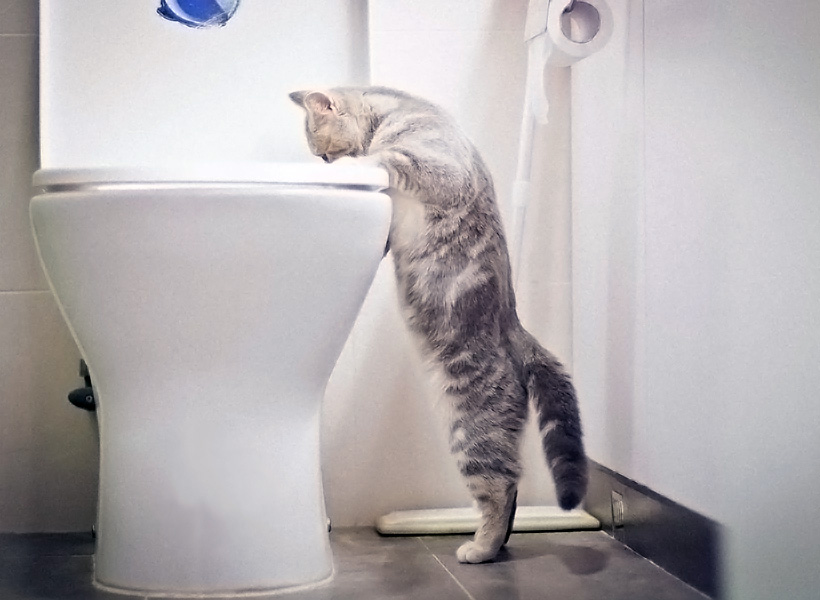Why You Should Avoid Flush Cat Poop Down Your Toilet - Crucial Facts
Why You Should Avoid Flush Cat Poop Down Your Toilet - Crucial Facts
Blog Article
How do you really feel when it comes to How to Dispose of Cat Poop and Litter Without Plastic Bags?

Intro
As pet cat proprietors, it's vital to bear in mind just how we deal with our feline buddies' waste. While it might seem convenient to flush feline poop down the commode, this practice can have destructive repercussions for both the environment and human wellness.
Alternatives to Flushing
Luckily, there are safer and much more accountable methods to dispose of feline poop. Take into consideration the following choices:
1. Scoop and Dispose in Trash
One of the most typical method of dealing with pet cat poop is to scoop it right into an eco-friendly bag and throw it in the trash. Make certain to use a specialized litter scoop and get rid of the waste immediately.
2. Usage Biodegradable Litter
Go with biodegradable feline litter made from materials such as corn or wheat. These clutters are eco-friendly and can be securely taken care of in the trash.
3. Hide in the Yard
If you have a lawn, consider burying feline waste in a designated location far from vegetable yards and water sources. Make sure to dig deep sufficient to avoid contamination of groundwater.
4. Install a Pet Waste Disposal System
Purchase an animal waste disposal system specifically created for feline waste. These systems utilize enzymes to break down the waste, reducing smell and environmental influence.
Health Risks
In addition to ecological problems, purging feline waste can additionally posture health and wellness risks to humans. Feline feces might consist of Toxoplasma gondii, a parasite that can trigger toxoplasmosis-- a possibly extreme ailment, particularly for expectant women and individuals with weakened immune systems.
Environmental Impact
Flushing pet cat poop presents damaging virus and parasites right into the water, positioning a significant risk to water communities. These impurities can adversely impact aquatic life and compromise water quality.
Conclusion
Liable family pet ownership expands beyond giving food and shelter-- it also includes proper waste administration. By refraining from flushing feline poop down the toilet and choosing alternate disposal approaches, we can minimize our environmental impact and shield human wellness.
Why Can’t I Flush Cat Poop?
It Spreads a Parasite
Cats are frequently infected with a parasite called toxoplasma gondii. The parasite causes an infection called toxoplasmosis. It is usually harmless to cats. The parasite only uses cat poop as a host for its eggs. Otherwise, the cat’s immune system usually keeps the infection at low enough levels to maintain its own health. But it does not stop the develop of eggs. These eggs are tiny and surprisingly tough. They may survive for a year before they begin to grow. But that’s the problem.
Our wastewater system is not designed to deal with toxoplasmosis eggs. Instead, most eggs will flush from your toilet into sewers and wastewater management plants. After the sewage is treated for many other harmful things in it, it is typically released into local rivers, lakes, or oceans. Here, the toxoplasmosis eggs can find new hosts, including starfish, crabs, otters, and many other wildlife. For many, this is a significant risk to their health. Toxoplasmosis can also end up infecting water sources that are important for agriculture, which means our deer, pigs, and sheep can get infected too.
Is There Risk to Humans?
There can be a risk to human life from flushing cat poop down the toilet. If you do so, the parasites from your cat’s poop can end up in shellfish, game animals, or livestock. If this meat is then served raw or undercooked, the people who eat it can get sick.
In fact, according to the CDC, 40 million people in the United States are infected with toxoplasma gondii. They get it from exposure to infected seafood, or from some kind of cat poop contamination, like drinking from a stream that is contaminated or touching anything that has come into contact with cat poop. That includes just cleaning a cat litter box.
Most people who get infected with these parasites will not develop any symptoms. However, for pregnant women or for those with compromised immune systems, the parasite can cause severe health problems.
How to Handle Cat Poop
The best way to handle cat poop is actually to clean the box more often. The eggs that the parasite sheds will not become active until one to five days after the cat poops. That means that if you clean daily, you’re much less likely to come into direct contact with infectious eggs.
That said, always dispose of cat poop in the garbage and not down the toilet. Wash your hands before and after you clean the litter box, and bring the bag of poop right outside to your garbage bins.
https://trenchlesssolutionsusa.com/why-cant-i-flush-cat-poop/

Do you appreciate reading about Can You Flush Cat Poop Down The Toilet?? Write a review below. We will be delighted to hear your thoughts about this blog post. We hope that you come back again in the future. Sharing is nice. Helping people is fun. I am grateful for your time. Please stop by our site back soon.
Call Today Report this page